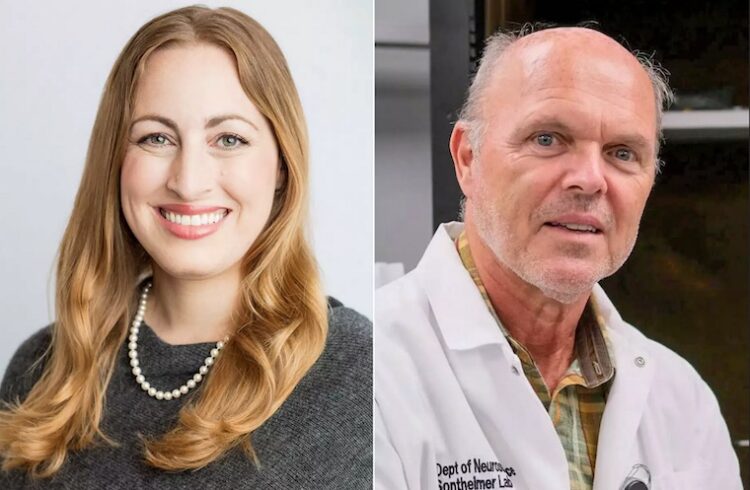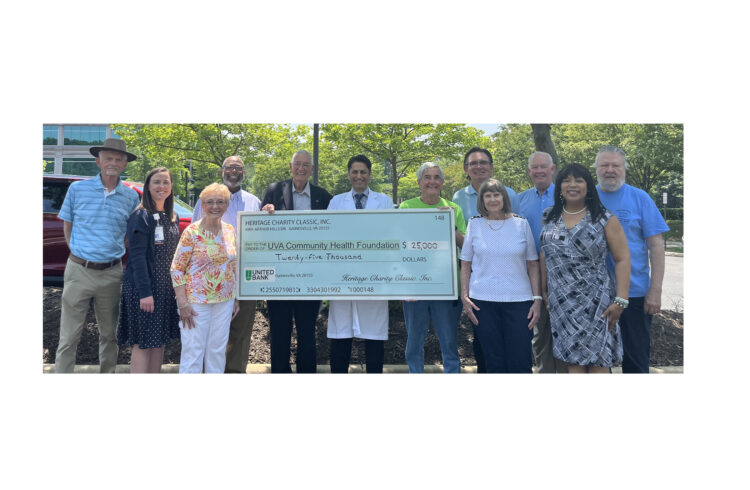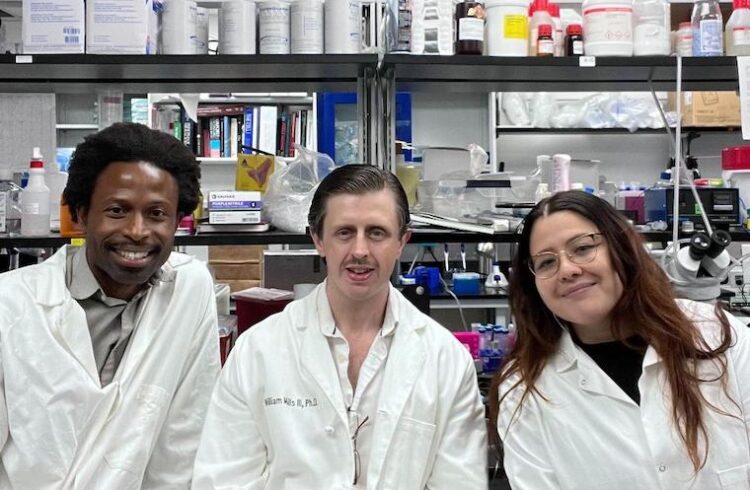
During the past two years, while Dr. Yanfeng Li has been looking for new approaches to human contraception as a research fellow at the University of Virginia Health System, the world’s population has increased by more than 200 million people.
Curbing this explosive growth is the goal of Dr. Li and the 26 other post-doctoral fellows who have come from India, China, Korea and Indonesia during the past 11 years to participate in an innovative training program at UVa.
“In creating this program, our goal was to provide advanced training to scientists from countries most affected by the environmental, economic and political problems caused by over-population,” explains John Herr, PhD, founder and head of UVa’s Fogarty Research Training Program in Reproductive Biology and Contraceptive Development.
The program has been a cutting-edge, multidisciplinary model for building international research capacity, transferring new technologies abroad and preparing highly trained scientists for leadership roles in their home countries. Besides gaining advanced technical competency, UVa Fogarty fellows develop the conceptual skills needed to translate fundamental knowledge into improvements in reproductive health.
Dr. Li’s research has provided the program with an important accomplishment – the identification of a previously unnamed gene within sperm that could prove valuable in the search for new contraceptive drugs. Dr. Li discovered the gene, PPCCB, while studying a cytoskeletal element in the sperm tail, called the fibrous sheath. PPCCB, which lies at the surface of the fibrous sheath, is a phosphoprotein that binds to calcium and forms assemblies with another calcium-binding protein known as CABYR.
Contraceptive drug developers are interested in calcium-binding proteins for good reason. Sperm flagellum needs calcium to make the whiplash-like movements necessary for fertilization. Dr. Li’s findings suggest that PPCCB and other calcium-binding proteins lying beneath the surface of the cell membrane may effect sperm flagellation.
Easing Asia’s Brain Drain Since its start, UVa’s Fogarty program has evolved along with the scientific needs of its collaborating countries. A current priority, says Dr. Herr, is to help stop Asia’s “brain drain.” Many of the younger, early-career scientists who come to the United States to study have stayed here, he explains. To ease this problem, the program has shifted its recruitment focus.
During its first five-year funding cycle from 1996 to 2001, the program targeted post-doctoral scientists and junior faculty members from 15 institutes and universities in India. During its second funding cycle, which has just ended, the program expanded its network of collaborating institutions and began recruiting mid-career, senior faculty members. It began offering what amounted to an extended research sabbatical, enabling experienced scientists to explore areas of personal interest or of high priority to their home institutions.
“By recruiting senior researchers with strong ties to their institutions and communities, we’re training fellows who want to bring their advanced level of competency back home and be leaders in contraceptive development there,” Dr. Herr says. “I believe UVa is the first fellowship program to focus on this group of mid-career scientists, offering two to three years of bench research in contemporary cell, molecular and reproductive biology.”
Take Dr. Li, for example. An MD who holds a PhD in Urology and Andrology, he had been a senior research faculty member of the Third Military Medical University in Chongqing, China, for 17 years before applying to the UVa Fogarty program.
“Coming to America was a big dream of mine,” says Dr. Li. After being delayed for a year by the SARS epidemic, he arrived on campus in November 2004. Dr. Li has drafted three papers about his research at UVa, which he believes will qualify him for a full professorship back home.
During his time at UVa, Dr. Li also acquired new surgical skills that he plans to teach to his colleagues and students. In fact, when he arrives back in Chongqing in early February, Dr. Li will return to the urology department where his multi-faceted position includes patient care, research and teaching.
He will also rejoin his wife, Dr. Wei He, who returned to China three months ago after completing her own Fogarty fellowship at UVa. Dr. He, who is also faculty member of the Third Military Medical University, focused her research on the identification and cloning of the cat and dog ePAD gene homologues as well as the identification of a new protein in the cytoplasm of the egg. Her work identified candidate proteins for inclusion in a contraceptive vaccine.
Fostering Scientific Statesmanship Both Dr. Li and Dr. He will continue their international research collaborations from their laboratories in China. “They are a great success story for us,” says Dr. Herr. “I like to think that Dr. Li and Dr. He are involved in a fundamental form of statesmanship. As scientists who are contributing to worldwide collaboration and understanding, they are helping to build bridges and ease global tensions.”
UVa’s Fogarty program is managed by the Center for Research in Contraceptive and Reproductive Health. As it starts its third five-year funding cycle, the program will continue recruiting senior faculty members, but will limit its applicant pool to two institutions in India – the Center for Cell and Molecular Biology in Hyderabad and the National Institute for Research in Reproductive Health in Mumbai.
By focusing its training on two partner institutions, UVa’s Fogarty Program will tailor its advanced training to their growth plans and faculty development needs, especially in the areas of proteomics and genomics. This collaboration moved forward last fall when Dr. Herr and Dr. Jay Fox, Associate Dean for Research at UVa, spoke at a symposium on proteomics and mass spectrometry in Mumbai and met with newly selected fellows.
The Fogarty Research Training Program in Reproductive Biology and Contraceptive Development receives major funding from the National Institutes of Health and maintains alliances with ContraVac, LIfeSign and Princeton BioMeditech. Schering, AG has licensed several patents developed through the program.


